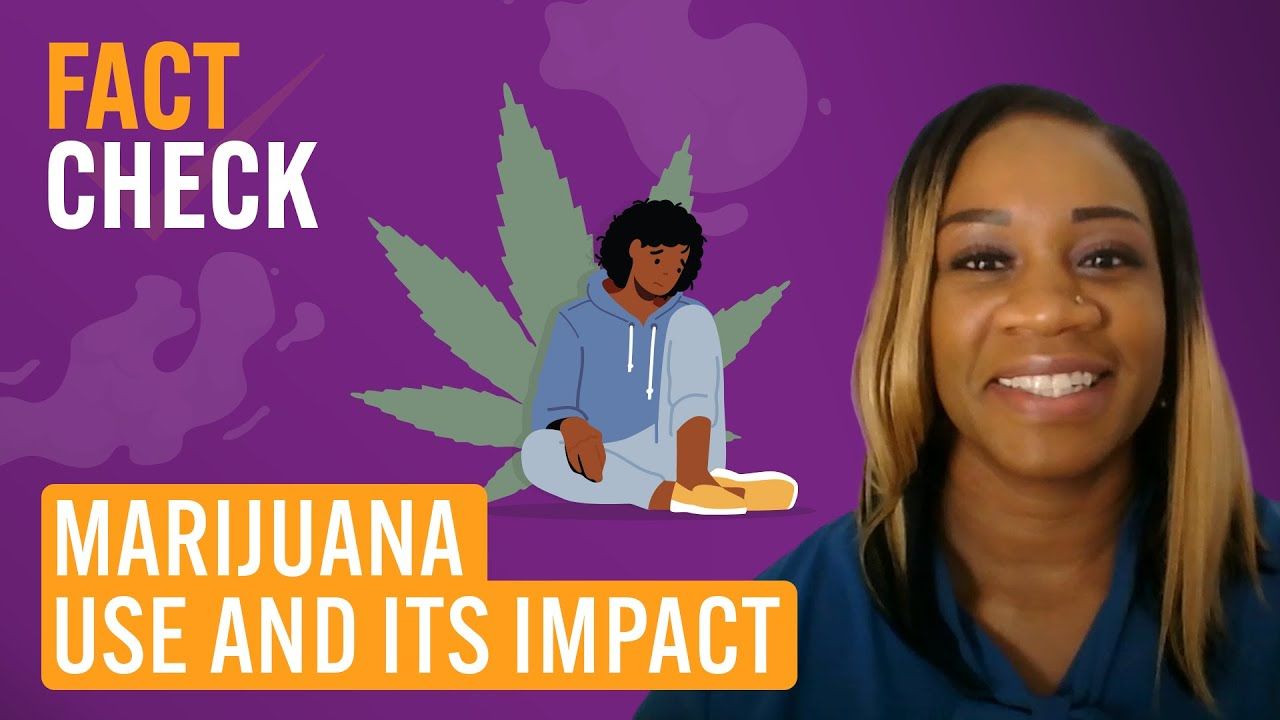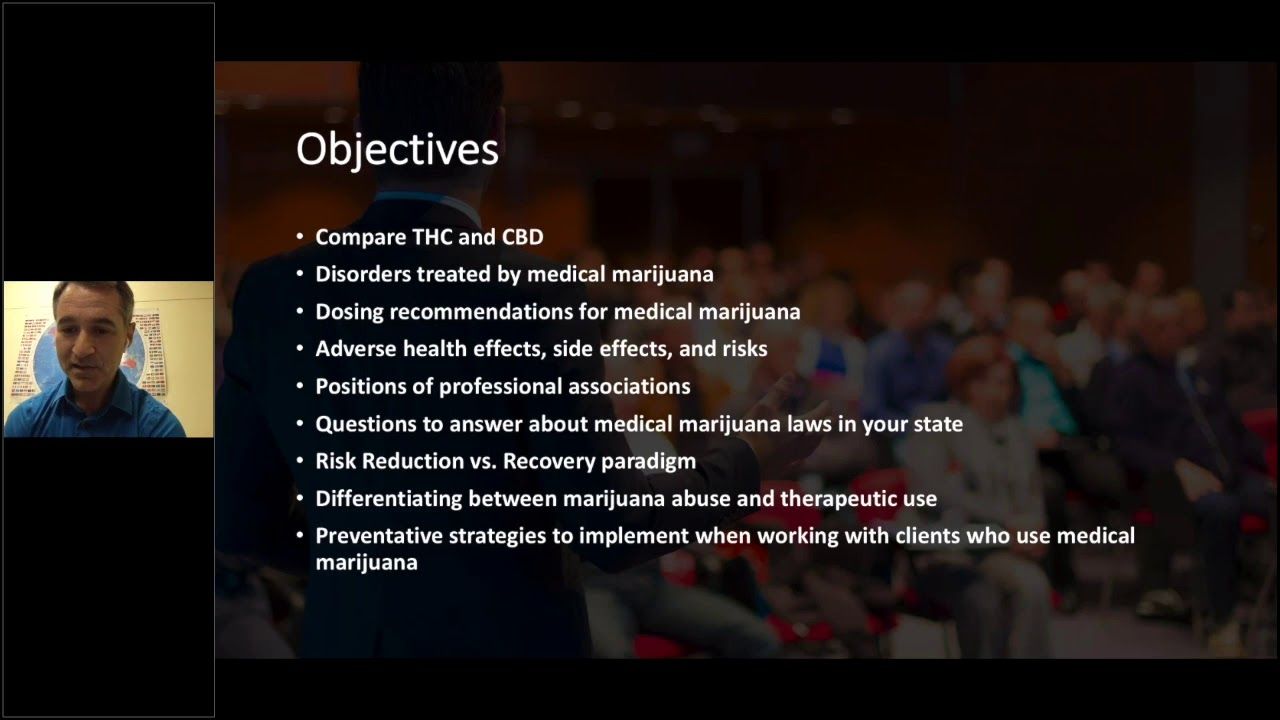Tag: substance abuse
Marijuana Use and Its Impact | Fact Check
Written by thcscout on . Posted in Facts. No Comments on Marijuana Use and Its Impact | Fact Check
In our latest video, recovery advocate and mother Carleah Summers provides all the details parents and family members need to know about marijuana – what it is, how it works and the negative effects that could result from using it.
“Problems with marijuana use can be prevented,” Summers says. “The longer teens delay use, the less likely they are to develop a marijuana use disorder or addiction. We can all play a part by supporting policies and programs that prevent or reduce marijuana use among teens and by not normalizing its use as a harmless way to have fun.”
For more information on marijuana and cannabis products and their associated risks, visit these Partnership to End Addiction resources below:
WEB: Marijuana Resource Center – This hub brings together all of our most relevant information for parents and family members to explore. https://drugfree.org/marijuana-resource-center/
WEB: Marijuana: What You Need to Know to Help Protect Children, Teens and Young Adults – Check out this deep dive into the details around why kids use marijuana, what the effects can be and what long-term risks exist. https://drugfree.org/article/marijuana-what-you-need-to-know/
PDF: Marijuana Talk Kit – What parents need to know to talk with their teens about marijuana. https://drugfree.org/wp-content/uploads/2017/02/Marijuana_Talk_Kit.pdf
Subscribe to Partnership to End Addiction: https://bit.ly/SubcribeToEndAddiction
The Partnership To End Addiction is committed to making sure the stigmas behind substance abuse is debunked and the facts are available. On Fact Check, we lay out the information you need to stay educated on substance use and abuse.
More Fact Check: https://youtube.com/playlist?list=PLu1Vzpklw-4Nqndl7G2SCjeF-jP5VYGgg
Partnership to End Addiction is a national nonprofit providing personalized support and resources for families impacted by addiction. With decades of experience in direct services, communications and coalition-building, we mobilize families, policymakers, researchers and health care professionals to more effectively address addiction systemically on a national scale. For more information, visit drugfree.org.
Connect with us: https://drugfree.org
Facebook: https://www.facebook.com/PartnershipToEndAddiction
Twitter: https://twitter.com/ToEndAddiction
Instagram: http://instagram.com/PartnershipToEndAddiction
LinkedIn: https://www.linkedin.com/company/PartnershipToEndAddiction
#LetsEndAddiction
Marijuana Use and Its Impact | Fact Check | Partnership to End Addiction
Cannabis Use in Teens: Risks, Patterns and Potential Therapeutic Effects
Written by thcscout on . Posted in Facts. No Comments on Cannabis Use in Teens: Risks, Patterns and Potential Therapeutic Effects
In this presentation, “Cannabis Use in Teens,” Dr. Bierman outlines risk factors, substance use patterns, potential therapeutic effects and more.
——————————————————-
This video is part of a series from the Partners in Pediatric Care (PIPC) conference in 2019. For the full playlist, please visit: https://www.youtube.com/watch?v=caJUeLsZYek&list=PLNxqP-XbH8BIRNqonR_aCqOWPaG1I4t60
Learn more about C.S. Mott Children’s Hospital:
https://www.mottchildren.org
——————————————————-
Subscribe to Michigan Medicine’s YouTube channel for upcoming videos and future live streams featuring our experts answering your questions.
Follow Michigan Medicine on Social:
Twitter: https://twitter.com/umichmedicine
Instagram: https://www.instagram.com/umichmedicine/
Facebook: https://www.facebook.com/MichiganMedicine
Follow C.S. Mott Children’s Hospital on Social:
Twitter: https://twitter.com/MottChildren
Instagram: https://www.instagram.com/mottchildren/
Facebook: https://www.facebook.com/mottchildren/
#MentalHealth #TeenHealth #MichiganMedicine #Pediatrics #Healthcare #Medicine #MottChildrensHospital #UniversityOfMichiganHospital #PediatricMentalHealth
Bradford Health Services – Little known facts about Marijuana.mp4
Written by thcscout on . Posted in Facts. No Comments on Bradford Health Services – Little known facts about Marijuana.mp4
888.577.0012
Twitter
http://twitter.com/recoverymoments
Facebook
http://facebook.com/RecoveryMoments
Pinterest
http://pinterest.com/recoverymoments
Other Videos and Resources
http://www.recoverymoments.com
Bradford Website
http://www.bradfordhealth.com
What Mental Health Professionals Need to Know About Medical Marijuana
Written by thcscout on . Posted in Medical. No Comments on What Mental Health Professionals Need to Know About Medical Marijuana
1. What does the law say about medical marijuana in my state?
2. What is the difference between medical delta-9-tetrahydracannabinol (THC) and medical cannabidiol (CBD)?
3. How do I know whether my client is using medical marijuana therapeutically vs. abusing it?
4. What does the research say about what conditions medical marijuana might be helpful for, and which ones it can make worse?
5. What are the risks, side effects, and potential drawbacks of medical marijuana?
6. How do I know my client is overmedicated?
7. If my client uses medical marijuana, can employers discriminate against him or her?
8. What do I do if a client is referred to me for substance abuse treatment but is legally taking prescribed marijuana?
This 2-hour webinar seeks to provide attendees with answers to some of these questions, and resources for others.
Learning Objectives:
1. Understand the difference between medical THC and CBD.
2. Differentiate between the risk reduction perspective and total recovery perspective on marijuana use for individuals with co-occurring substance use and mental disorders.
3. Identify what disorders might be treated by medical marijuana.
4. Familiarize yourself with the positions of major healthcare associations on medical marijuana.
5. Learn about dosing recommendations and indications for medical marijuana.
6. Identify adverse health effects, side effects, and risks associated with medical marijuana.
7.Review a list of questions to answer about medical marijuana laws in your state.
8. Explore strategies to differentiate between marijuana abuse and therapeutic use of medical marijuana.
9. List several preventative strategies to implement when working with clients who use medical marijuana.
About the Presenter:
Aaron Norton is a Licensed Mental Health Counselor, Licensed Marriage & Family Therapist, Certified Master’s-Level Addictions Professional, and Certified Forensic Mental Health Evaluator specializing in substance abuse and co-ccurring disorders, clinical and forensic evaluation, and clinical supervision. He is a counselor educator at the University of South Florida’s College of Behavioral & Community Sciences, the Executive Director of the National Board of Forensic Evaluators, and the Chair of the Florida Mental Health Counselors Association’s Education, Training Standards, & Continuing Education Committee. He is recognized by the American Mental Health Counselors Association as a Diplomate & Clinical Mental Health Specialist in Substance Abuse & Co-Occurring Disorders. He was awarded Mental Health Counselor of the Year by the American Mental Health Counselors Association and Counselor Education of the Year by the Florida Mental Health Counselors Association in 2016. An experienced presenter and trainer, he has also been published in the Journal of Orthopsychiatry, Addiction Professional, and the Journal of Gay & Lesbian Social Services. He is completing his Ph.D. in Counselor Education & Supervision at the University of South Florida.
DISCLAIMER: Continuing education hours are only available to clinicians who attended the live webinar event on 6/14/18. This recoding was posted for educational purposes only.




